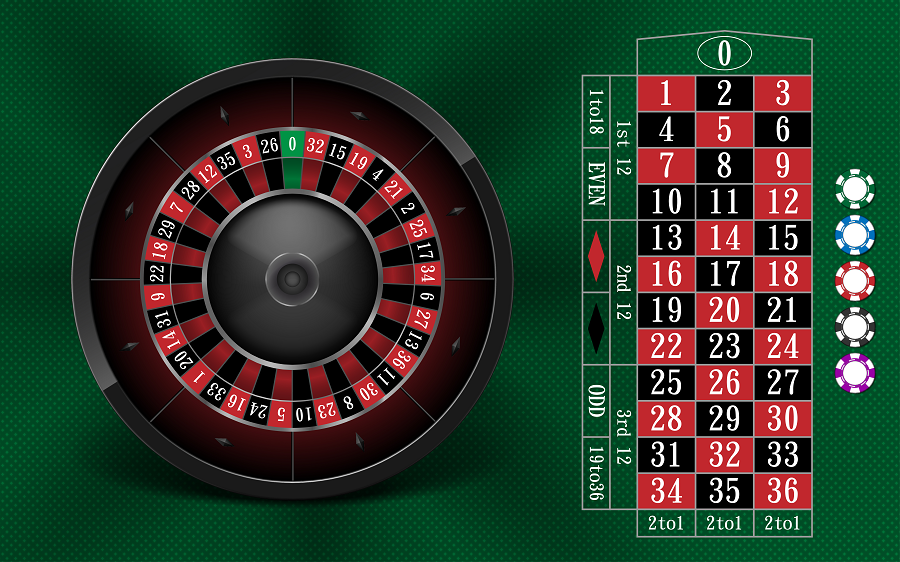In our preceding article titled “WinWave system: Online Casino Crack Algorithms,” we explored our insights concerning risk management in online casinos. This time, we will delve deeper into our research, initially focusing on distinguishing between live and digital roulette in online casinos. I will also explain why this distinction is crucial in formulating your strategy.
Live Roulette versus Random Roulette: A Detailed Comparison
Online casinos generally offer two distinct types of roulette: “live” and “digital” or “random” roulette. Here’s a breakdown of the major differences between them:
Live Roulette
Live Roulette, or “live dealer” roulette, employs real-time video streaming. It involves a natural person operating the roulette table, typically set in a studio that resembles an actual casino. Gamblers place their bets digitally, while the outcomes are dictated by the dealer’s tangible spinning roulette wheel. This scenario imparts a genuine casino ambiance to the player.
Random Roulette
On the other hand, random roulette lacks a physical dealer or roulette wheel. All spins and results are determined purely by a random number generator (RNG) embedded within a computer program. Although the visuals and audio might simulate the experience of an authentic roulette wheel, the entire gameplay is governed by software.
To offer a more comprehensive perspective, it’s worth noting that in cryptocurrency casinos or those utilizing blockchain technology, cryptographic hash functions like SHA-256 may be employed to ascertain the fairness of games. This methodology empowers the casino to generate random numbers immune to biased manipulation, and players can verify this post-game to confirm their legitimacy.
Understanding the underlying principle of potentially disrupting randomness when playing with a live dealer is pivotal. It necessitates more strategic thoughtfulness in such scenarios.
In a casino, the dealer (or croupier) doesn’t influence the outcome of a roulette wheel spin. Once all bets are lodged, the dealer propels the ball in the opposite direction of the wheel’s rotation. As the wheel gradually loses momentum, the ball ricochets off dividers before eventually landing in one of the pockets, thus defining the winning number and colour. This process is inherently random and beyond prediction.
Should a dealer have the capacity to dictate game outcomes, it would be a gross violation of the principles of fairness and unpredictability, which form the very bedrock of gambling. Casinos, for their part, are subject to regulation and external audits implemented to guarantee fairness and transparency. While the veracity of this statement may be debatable, the dealer does have the potential to impact the direction of a strategy.
In specific scenarios, such as online casinos, auditors are called upon to scrutinize the RNG (Random Number Generator) and other game-related aspects for fairness.
In theory, it is only partially implausible for online casinos to attempt to manipulate games or neglect to uphold the standards of fairness. However, resorting to such tactics is illegal and could invite severe legal repercussions, including license termination.
The purpose of online casino regulation is to deter such malpractices and to champion fair gameplay. Licensed online casinos come under the jurisdiction of various organizations and authorities, including governmental bodies. These entities conduct audits and checks to confirm the casino’s compliance with standards of transparency and fairness.
A critical component of these standards is employing a random number generator (RNG), which ensures that game outcomes remain random and unpredictable. Independent entities often vet the reliability and fairness of these RNGs.
All of this underlines the importance of choosing to play exclusively at licensed and regulated online casinos. Should a casino be approved and overseen by a trusted organization, the chances of resorting to dishonest tactics or game manipulation are substantially reduced.
Identifying Patterns in Online Roulette Numbers Before we delve into this, let’s familiarize ourselves with the structure of a roulette table.
The Roulette Table
Conventionally, a roulette table is divided into two primary sections: the roulette wheel and the betting layout.

The Roulette Wheel
The wheel consists of slots sequentially numbered from 0 to 36, arranged haphazardly. The colours of the slots switch between red and black. In the American roulette variant, there’s an additional ’00’ slot, also coloured green. During gameplay, either the dealer or the program, in the case of an online casino, spins the wheel and launches a ball onto it. The slot in which the ball eventually lands determines the winning number.
The Betting Layout
This is the player-facing part of the table, where players can position their betting chips. Numbers from 0 (and ’00’ in the American version) to 36 are ordered in three rows, each containing 12 numbers. Players can wager on individual numbers, on even or odd, on red or black, and on clusters of numbers (1-12, 13-24, 25-36), among others. Typically, the bottom of the betting layout features additional slots for betting on even/odd, red/black, 1-18/19-36, etc.
While this provides a broad view of a standard roulette table, specific details differ depending on the game’s variant and the individual rules of the particular casino.
I’ve purposefully underscored even/odd, red/black, 1-18/19-36, as these additional slots will form the basis for our initial patterns.
WinWave System Even/Odd Patterns
When an even number shows up consecutively three times or more, the chances of an odd number surfacing after the event series heightens. Conversely, if an odd number appears in succession three times or more, the likelihood of an even number succeeding the series of odd numbers also increases. These patterns can guide betting in roulette games that don’t employ risk management and where outcomes are dictated by a Random Number Generator (RNG). While the Martingale system could be adopted in such situations, it’s vital to consider all potential risks. Numerous players wait for a 5-6 repetitions pattern before applying the Martingale system. This approach significantly diminishes risk but requires patience as these patterns emerge less frequently. You can monitor multiple ways to reduce waiting times: even/odd, red/black, 1-18/19-36.
WinWave System Red/Black Patterns
If red comes up successively three times or more, the probability of a black number following this red series escalates. In contrast, if black surfaces consecutively three times or more, the chance of a red number appearing after the black series likewise increases.
WinWave System 1-18/19-36 Patterns
When a number within the 1-18 range comes up successively three times or more, the odds of a number from the 19-36 range following this series rise. Conversely, if a number within the 19-36 range surfaces consecutively three times or more, the likelihood of a number from the 1-18 range following the series likewise augments.
Pattern Overlap
By scrutinizing the game’s outcomes, you might detect overlapping patterns. For example, if the numbers 1, 7, and 3 emerge consecutively, it triggers three concurrent ways: 1-18, three successive reds, and three sequential odd numbers. When such a pattern arises, you can initiate the Martingale system in three ways: betting on 19-36, black, and even. It’s worth remembering that amplifying repetitions diminishes risk and extends the waiting period.
Why This Strategy Is Inapplicable to Live Roulette
This digital or random roulette method carries risk, so if you choose to use the Martingale system, you should initially constrain the number of times you increase your bets. In live roulette, this strategy can result in a devastating loss as the dealer might be able to sway the results. Be extra vigilant if you detect a dealer change. While this can occur for commonplace reasons – such as the dealer needing a break – it could also signal the entrance of a seasoned dealer who can manipulate the results.
Suppose you’re playing live roulette and witness the sequence of numbers 1, 3, 5, 7, and 9 being drawn. If we presuppose the dealer can influence the outcomes, I would conjecture that other players’ substantial bets are likely on even, black, and 19-36. I recommend betting on odd, red, and 1-18.
If you observe specific numbers frequently recurring, there are probably no significant wagers placed on them.












